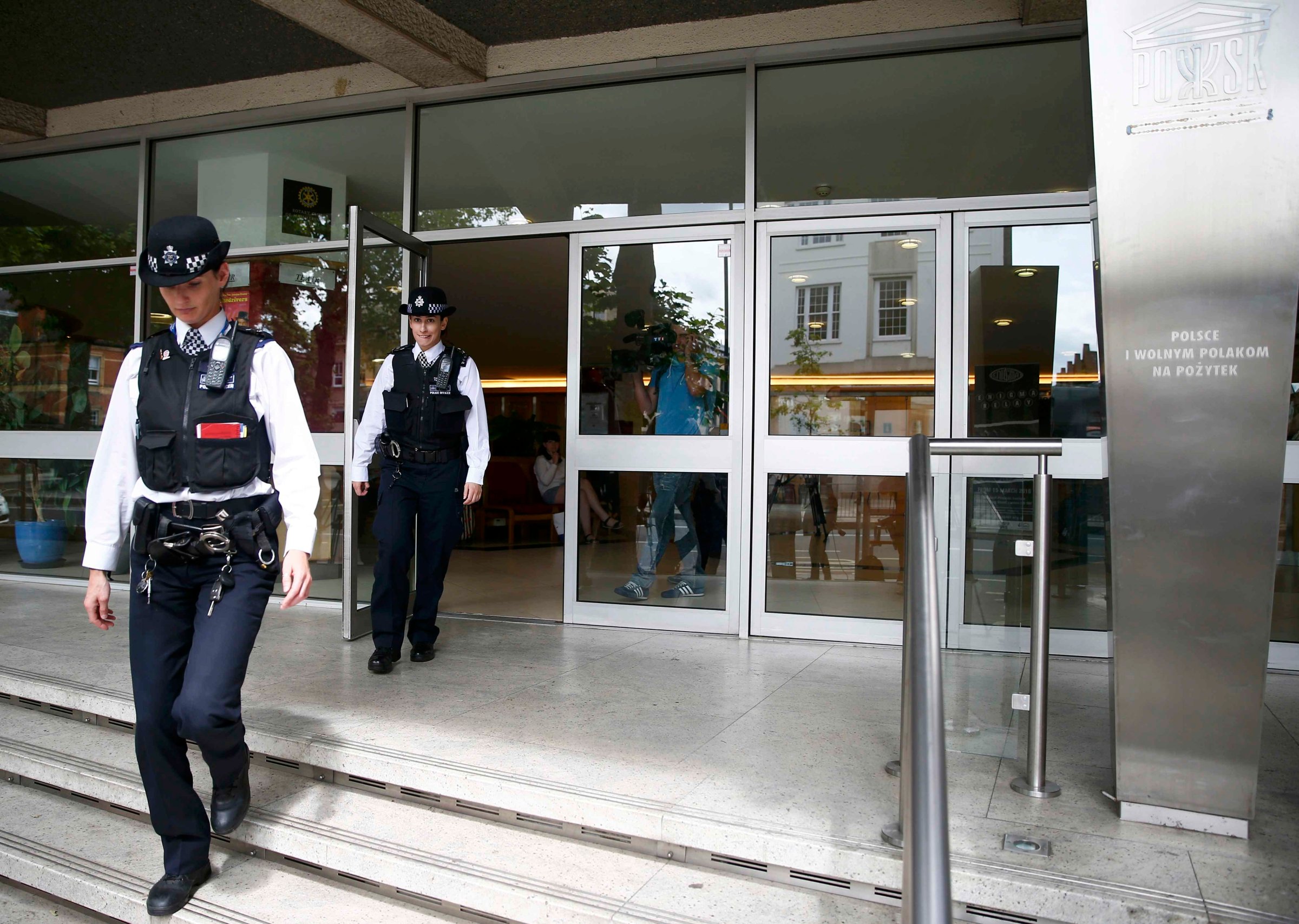
A few days after Britain’s vote to leave the E.U. on June 24, PhD student Agata Brzeźniak was approached by a woman on a bus in Manchester, asking her if she was Polish. When Brzeźniak said yes, the woman told her to be “scared” before moving on.
The 25-year-old’s account is just one of hundreds of anecdotes circulating on social media of xenophobic attacks against Europeans and other minority groups traveling on public transport, serving patrons in restaurants, or walking in their neighborhoods. Their claims have been supported by police, who announced a 57% increase in reported hate crimes compared to a pre-referendum average.
Commentators such as Labour Party MP Carolyn Harris say the vote to leave the E.U. has spurred a racist minority to lash out at the country’s immigrant population. The focus on immigration levels by some pro-Leave campaigners — and heavily anti-E.U. newspapers such as the Daily Express — was sometimes called racist; a poster unveiled by former U.K. Independence Party (UKIP) leader Nigel Farage was heavily criticized for displaying a column of dark-skinned migrants stretching towards the horizon, with the words ‘Breaking Point.’
Yet groups that monitor hate crimes say it is too simplistic to blame the spike in reported incidents purely on the referendum vote. “This behavior just did not start last week,” Assistant Chief Constable Mark Hamilton, the National Police Chiefs’ Council lead on hate crime, told the BBC this week. “Many people have suffered for a long time.”
Rachel Robinson, a policy officer who focuses on immigration at the civil liberties group Liberty, says their group saw a change in mood in 2010 after the Conservatives first took power. The current government tied “every social ill … in the political discourse to immigration”, she says, turning immigrants into a scapegoat for everything that can go wrong.
She points to such examples as a 2013 van scheme carrying billboards telling illegal immigrants to “go home” pioneered by Home Secretary Theresa May — currently on track to be Britain’s next Prime Prime Minister — as well as “right to rent” measures that placed the onus on checking the immigration status of tenants to landlords. “You can’t make it a hostile environment for one group of people without it having knock-on effects to the wider community,” she says.
Matthew Collins, a researcher for the anti-racism group Hope not Hate, says he has observed virulent anti-immigrant rhetoric seeping into the mainstream for years. Part of his job involves monitoring far-right online media in the U.K. But in recent years he has found himself checking national newspapers like the Daily Mail and the Express, which have been using language and symbolism that was once considered taboo. In 2015, an editorial cartoon by the Mail was criticized as using 1930s Nazi anti-Semitic propaganda as it seemed to equate migrants fleeing wars into Europe with rats.
Traditional far-right groups have collapsed in the U.K. due to their language being “mainstreamed” and used by populists like UKIP, Collins says. “When David Cameron was elected as Prime Minister for the second time [in 2015] he promised things like being tough on immigration, he promised people a referendum on E.U. membership. That is when we really saw a real hardening of language in reporting.”
The bigotry that has emerged has different roots to the popular ethno-nationalism of the 1970s, says Collins, who was a member of far-right groups like the National Front before he “grew up” in 1989 and began helping anti-extremist organizations. The xenophobic schisms in today’s Britain, he says, have less to do with “ideas of [racial] superiority and more and more of it is just based on desperation.”
Collins suspects today’s hate crime perpetrators largely come from marginalized white communities who largely voted for Britain to leave the E.U. in the referendum. These communities exist in a constant “fight for resources” caused by years of austerity, he says, where the struggle to find jobs and get doctors’ appointments, school places and housing can seem exacerbated by migration levels.
The question now becomes how to fix the levels of distrust and fear among certain sections of the British population. The U.K.’s equality watchdog, the Equality and Human Rights Commission will look into how race policy in the U.K. must be strengthened. Speaking to TIME, its chair David Isaac says that projecting the message that diversity is a source of opportunity in the U.K. should be supported. “The referendum has created all sorts of splits and schisms, and that’s why getting the message across that diversity can enhance what the U.K. has to offer…[is] important.”
But Collins says it’s important for anti-racism campaigners not to widen the empathy gap that opened up during the referendum campaign. Dismissing the 52% of voters who elected to leave the E.U. as “fuddy duddy and racist” could exacerbate tensions even further, he says. “If you victimize someone, if you go around calling someone a racist for long enough, they will become a racist.”
More Must-Reads from TIME
- Why Trump’s Message Worked on Latino Men
- What Trump’s Win Could Mean for Housing
- The 100 Must-Read Books of 2024
- Sleep Doctors Share the 1 Tip That’s Changed Their Lives
- Column: Let’s Bring Back Romance
- What It’s Like to Have Long COVID As a Kid
- FX’s Say Nothing Is the Must-Watch Political Thriller of 2024
- Merle Bombardieri Is Helping People Make the Baby Decision
Contact us at letters@time.com